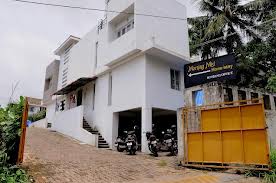
Mangalore, October 10: The police have arrested four more persons in connection with the infamous homestay attack. With this the number of arrests in this case has gone up to 28.
The police gave the names of four arrested as Kiran, Shreyas, Deekshit and Ganesh. All of them were from different parts of the city.
They were reported arrested on the basis of information provided the other accused arrested earlier relating to the incident.
It may be recalled here that dozens miscreants belonging to Hindu Jagarana Vedkie had stormed into Morning Mist Homestay at Padil on the outskirts of the city in July this year to molest partying girls and attack boys.






Comments
Add new comment